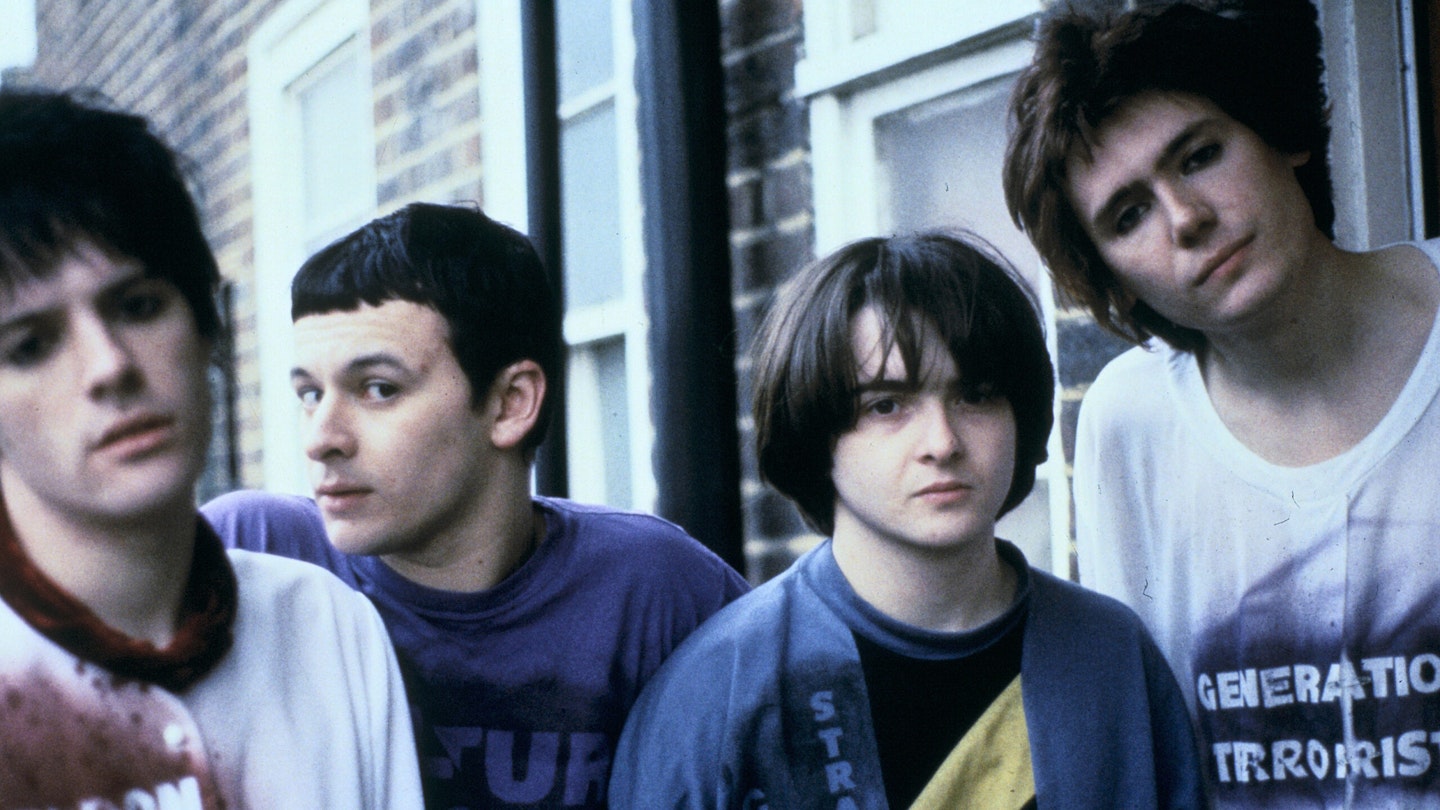168 Songs Of Hatred And Failure: A History Of Manic Street Preachers
★★★★★
Keith Cameron
WHITE RABBIT

In his brisk introduction to this 550-page triumph, the MOJO writer Keith Cameron perfectly summarises a 37-year career: “Manic Street Preachers built their own reality, then rebuilt it multiple times.”
-
READ MORE: Every Manic Street Preachers Album Ranked
They arrived from their native south Wales as a neo-punk quartet with a year-zero interview technique. Now, three decades after the disappearance of Richey Edwards, they manage to combine the damaged wisdom of middle age with the restlessness that has always defined them. Which is to say, the Manics remain a completely singular presence, with reference points that no other rock group has ever got near, from Albert Camus to the Skids. That means, of course, that they are a dream subject for the right kind of author, and ideally suited to a Revolution In The Head-esque telling of their story via forensic exploration of their compositions and recordings, and everything that has been poured into them.
When he started writing, Cameron – working with Nicky Wire and James Dean Bradfield, who provided input and long interviews – had 319 to choose from; 168 became the magic number thanks to the tribute to pop music’s quickfire majesty in their breakthrough single Motown Junk: “Stops your heart beating for 168 seconds.” The list begins with 1988’s Clash-esque Suicide Alley and closes with a recent bonus track titled Johatsu, the Japanese word for the phenomenon whereby people disappear, “typically when faced with Japan’s societal shame for failure.”
“Whatever the crises and fireworks scattered through this book, what really matters is the art.”
In between lies a narrative full of wonderful detail. 1993’s From Despair To Where was based on a brilliantly madcap quest to somehow combine Joy Division’s From Safety To Where with Rod Stewart’s True Blue, and momentarily convinced the Manics’ late manager and mentor Philip Hall that it was “gonna be our transatlantic Number 1, like Maggie May.” On Underdogs, a limited-edition single that trailed 2007’s Send Away The Tigers, Bradfield ruefully admits that he was far too in thrall to Metallica: “I was completely fucking Hetfielded out of my mind. It was too big, too proto-metal, too legs astride.” On a doomed European tour in 1994, Wire survived on “personal stocks of Crunchy Nut cornflakes, which he kept under his bunk on the tourbus.”
The over-arching plot is driven by the aforementioned creative rebuilding – tales of how this most self-aware of bands have consistently transformed what they do, which Wire and Bradfield tell with both insight and bathetic humour. But as well as their contributions, what really clinches the book’s excellence is Cameron’s incisive prose. Nicky Wire’s vocal on 2009’s William’s Last Words, he writes, was “nervous but resolute, like watery early morning sunlight”. The Masses Against The Classes, the ferocious single that reached Number 1 in January 2000, is nailed as “a self-directed booby trap of rage at what the Manics had become”.
His most vivid observation of all is that whatever the crises and fireworks scattered through this book, what really matters is the art: “Songs made the Manics, offered them a means to escape, to transcend and to celebrate themselves, and songs saved them and sustain them still.” This is the story told here, so consummately that it feels completely definitive.
What we’ve learnt from 168 Songs Of Hatred And Failure:
-
An unlikely guest on 1993’s Gold Against The Soul was Andrew ‘Shovell’ Lovell, percussionist with pop-dance hitmakers M People, present on tracks including From Despair To Where and La Tristesse Durera. The latter also features the only instance of Richey Edwards playing guitar on one of his band’s records: “a single sustained barre chord, after the first chorus.”
-
Prior to the recording of Small Black Flowers That Grow In The Sky from Everything Must Go, producer Mike Hedges promised the Manics “Frank Sinatra’s harpist”. Bradfield thought this “might be bullshit”, but she duly materialised: Julie Allis, who Hedges had worked with on Marc Almond’s 1985 album Stories Of Johnny.
-
In preparation for his contribution to 2010’s Some Kind Of Nothingness, Echo And The Bunnymen’s Ian McCulloch asked for “two packs of Marlboro Red, two pints of milk – ‘full fat, none of that World War Two shit’ – and a bottle of Courvoisier.”
168 Songs Of Hatred And Failure: A History Of Manic Street Preachers is published September 11 on White Rabbit books.
ORDER: Amazon | Rough Trade
Get the latest issue of MOJO for the definitive verdict on all the month's essential new releases, reissues, music books and films. More info and to order a copy HERE!

Photo: Martyn Goodacre/Redferns
